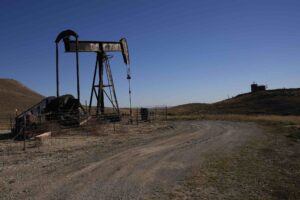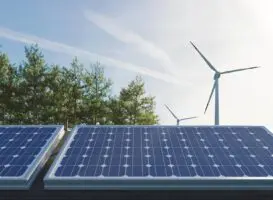Federal Opposition leader Peter Dutton this week welcomed new UK prime minister Sir Keir Starmer’s landslide victory, making a point of the fact that UK Labour supported nuclear power.
“I take this opportunity to commend Sir Keir Starmer and the UK Labour Party for their goals to make Britain ‘a clean energy superpower’ and to achieve ‘energy independence’,” Dutton said in a post on X/Twitter.
“The new British Government’s plan includes building new nuclear power stations and small modular reactors to help the UK ‘achieve energy security and clean power while securing thousands of good, skilled jobs.’ There is much Australia can learn from the British experience.”
Indeed there is. For a start, Dutton may also note the part of UK Labour’s energy policy that he failed to mention, the biggest and most important part, the fact that it intends to “double onshore wind, triple solar power, and quadruple offshore wind by 2030.”
In terms of new capacity, that is about double what the federal Labor government in Australia is seeking to build by 2030, and will take total offshore wind capacity in the UK to around 55 gigawatts (GW), onshore wind to 30 GW and solar to 50 GW.
Yes, the UK Labour government is interested in building more nuclear plants, it is after all one of world’s nuclear powers and has a significant nuclear arsenal. But unlike the Tories it has not set a specific target for nuclear, and you could bet London to a brick, or even a potato, that none will be built by 2030.
The reluctance to make a prediction around nuclear is understandable.
When the new energy secretary Ed Milliband was last in the job in 2009, he promised to deliver 10 nuclear reactors within a decade. Only one started construction, Hinkley C in Somerset, and likely won’t be completed until 2031, and could end up costing more than $A90 billion, three times its original estimate.
Labour’s energy policy in many ways is reflective of global trends. Dutton and the federal Coalition often point to the agreement at the COP28 climate talks from 22 countries who said they would seek to triple nuclear power by 2050.
That sounds grand, until you look at the numbers. It would add about 1,000 gigawatts of nuclear power over nearly three decades. At the same conference, more than 120 countries pledged to triple renewable capacity by 2030 to more than 11,000 gigawatts.
To put that into context, what the nuclear industry hopes to achieve in 27 years, the renewables industry plans to achieve in little more than six months. The nuclear industry proposal equates to 40 GW a year. That is what the wind and solar industry is being asked to do every fortnight.
And what is striking about the UK Labour energy and climate plan – highlighted in a reported phone call between Anthony Albanese and Starmer this weekend – is that it intends to make the UK a clean energy superpower, and billions of dollars to support green industry and manufacturing, including batteries, EVs and green hydrogen.
Miliband’s official title is Secretary of State for Energy Security and Net Zero. He intends to make the UK a global climate leader, not a laggard.
In Australia though, the talk from the federal Coalition is one of regression. The calls for nuclear, as they have ever been in Australia, are accompanied by the same old tropes – that climate change is a hoax, that wind and solar will cause the lights to go out, that we should throw away the net zero targets.
The federal Coalition has openly threatened to bring the rollout of large scale wind and solar to a halt, to rip up contracts signed by the Commonwealth under its Capacity Investment Scheme, and to abandon Australia’s international obligations to meet its 2030 emissions targets.
If the federal Coalition had, at any time, accompanied their push for nuclear with a plan to accelerate emission cuts, and to fast track the transition of the economy away from fossil fuels to clean energy, then it might have been worth considering.
But the opposite is true. The intention is clearly to protect the coal and gas industry, to throw out climate targets and ignore international agreements. It’s not a policy to do something, as Dutton pretends, it’s a policy to not do anything. And trying to hitch on to the coat-tails of UK Labour will not change that.










